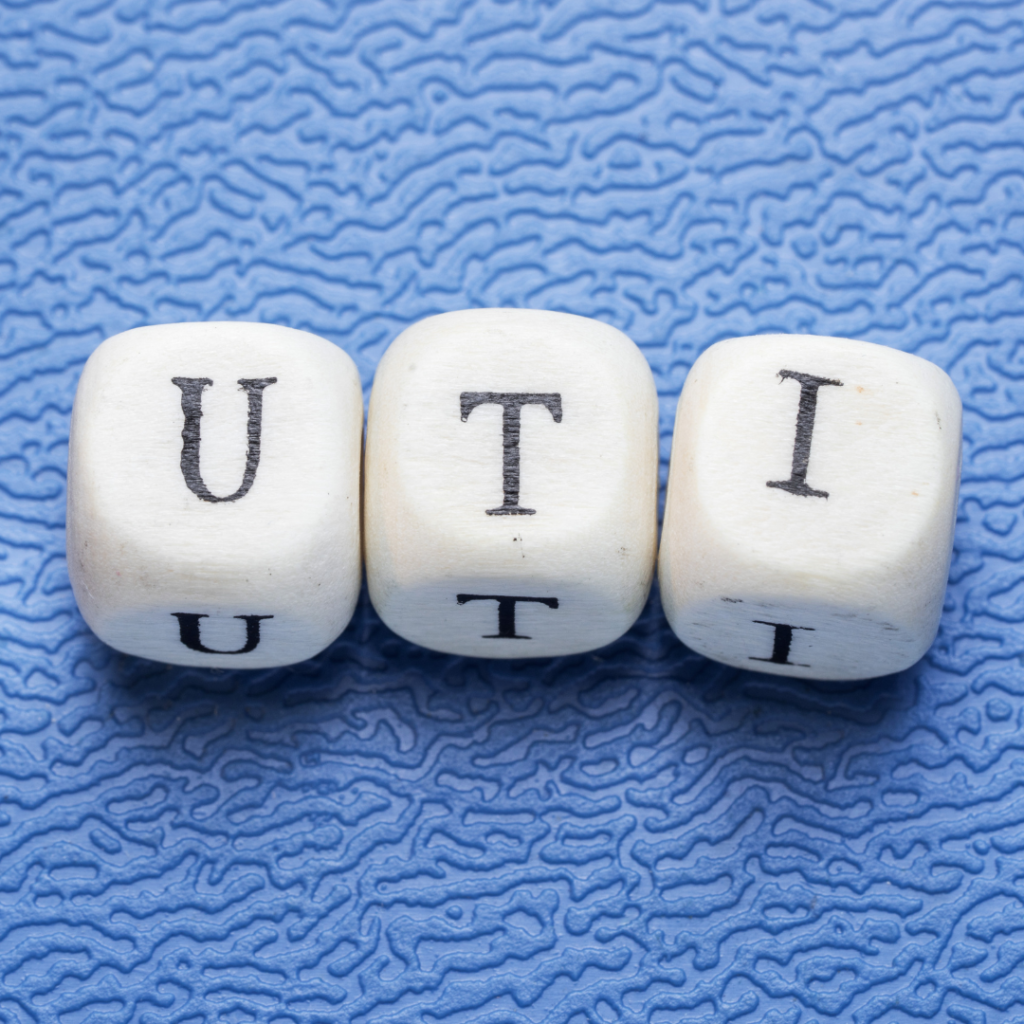A UTI or urinary tract infection, is unpleasant, can make you feel very unwell and if not treated properly, can result in other serious medical complications. They are something I have dealt with for a long time, since my first experience of one during my first pregnancy. They can be very common and some people do suffer with them more than others, or you can contract one, with no discernable reason why. As I have dealt with the menopause and it’s wide range of symptoms, arriving, I have noticed I tend to get a UTI more often, and they can be more common in menopausal women.
This post may contain affiliate links, which will be clearly marked with * for your reference

A UTI, or urinary tract infection, is an infection that affects any part of the urinary system, including the kidneys, bladder, ureters, and urethra. It is usually caused by bacteria, most commonly E-coli, but can also be caused by viruses or fungi. Common symptoms include a frequent urge to urinate, a burning sensation during urination, cloudy or strong-smelling urine, and pelvic pain. UTIs are more common in women than men, and can usually be treated with antibiotics. It is always a good idea to seek medical advice if you suspect you have a UTI but there are some things you can do to help make yourself more comfortable and relieve symptoms at home. It’s important to note that UTIs can be serious and may require medical intervention, so it’s always a good idea to consult with a healthcare professional for an accurate diagnosis and appropriate treatment. However, here are a few things you can try while waiting for medical advice:
- Stay hydrated: Drinking plenty of water can help flush out bacteria from your urinary tract.
- Urinate frequently: Don’t hold in urine for too long, as it can allow bacteria to multiply. Empty your bladder regularly.
- Use a heating pad: Applying a warm compress or heating pad to your lower abdomen can help alleviate discomfort.
- Take over-the-counter pain relievers: Non-prescription pain medications like ibuprofen or acetaminophen may help reduce pain and inflammation.
- Avoid irritants: Avoid caffeine, alcohol, spicy foods, and acidic drinks, as they can irritate the bladder and worsen symptoms.
Remember, these suggestions are not a substitute for professional medical advice. It’s best to consult with a healthcare professional for an accurate diagnosis and appropriate treatment plan.
What happens when I get a UTI?:
I usually notice that I am needing to go to the toilet more often than normal and that I can’t control the feeling that I need to go, and it feels more urgent. I also feel mild cramping and the sensation that my bladder is uncomfortable. I also feel like I have mild flu symptoms. My body feels a bit achy, and I have a sore head and I may get a mild fever. As soon as I feel these symptoms, I will use a urine test to check and see if there is bacteria in my urine, and then it’s a call to my GP to get advice and medication. You can actually also get a urine test kit * from your pharmacy and if that shows you have a UTI they will be able to give you the right medication you need, which is useful, if getting a GP appointment is tricky to manage.

I have also found that whilst you can’t always prevent a UTI occuring you can take steps to practice good hygiene to try and avoid them.
- Stay Hydrated: One of the simplest and most effective ways to prevent UTIs is by drinking plenty of water. Adequate hydration helps flush bacteria out of the urinary tract.
- Urinate Regularly: Don’t hold in your urine for extended periods. When you feel the need to urinate, go to the restroom. This helps to prevent the buildup of bacteria in the urinary tract.
- Wipe Properly: When using the toilet, always wipe from front to back. Wiping back to front can introduce bacteria from the anal area into the urethra. It’s also helpful to teach your children to do this, from an early stage so they develop good toilet hygience practices and they become a good habit.
- Empty Your Bladder Before and After Intercourse: Urinating before and after sexual activity can help flush out any bacteria that may have entered the urethra during sex.
- Practice Good Hygiene: Keeping the genital area clean is important. Choose mild, unscented soaps for cleaning, and avoid harsh or fragranced products that can irritate the urethra.
- Avoid Spermicides and Irritants: Certain products, like spermicides and some feminine hygiene sprays, can irritate the urethra and make it more susceptible to infection. Consider using alternatives or discussing options with a healthcare provider.
- Wear Breathable Underwear: Choose cotton underwear over synthetic materials, as it allows the area to breathe and reduces moisture, creating a less favorable environment for bacteria.
- Cranberry Products: Some studies suggest that cranberry products, such as cranberry juice or supplements, may help prevent UTIs by inhibiting the adhesion of bacteria to the urinary tract lining.
- Regularly Empty Your Bladder: Avoid holding urine for too long, as this can lead to the growth of bacteria in the urinary tract.
You can always also try a remedy that can help with flushing bacteria out of your urinary tract system. D Mannose is something that a pharmacist suggested might be helpful, as it can bind to and help to flush out E-coli from your urinary system, but it’s always a good idea to get medical advice before taking a supplement particularly if you suffer with reccurring UTI’s as you may need further tests to find out of there is another cause or issue going on.
UTI’s are not fun, but you usually can avoid them or get prompt tretment for them, but I would definitely say, that if you do think you have one, to not just ignore it and hope it will go away. Infections in what my Nana used to call “your waterworks” are not to be dismissed. Get them treated and feel better asap.